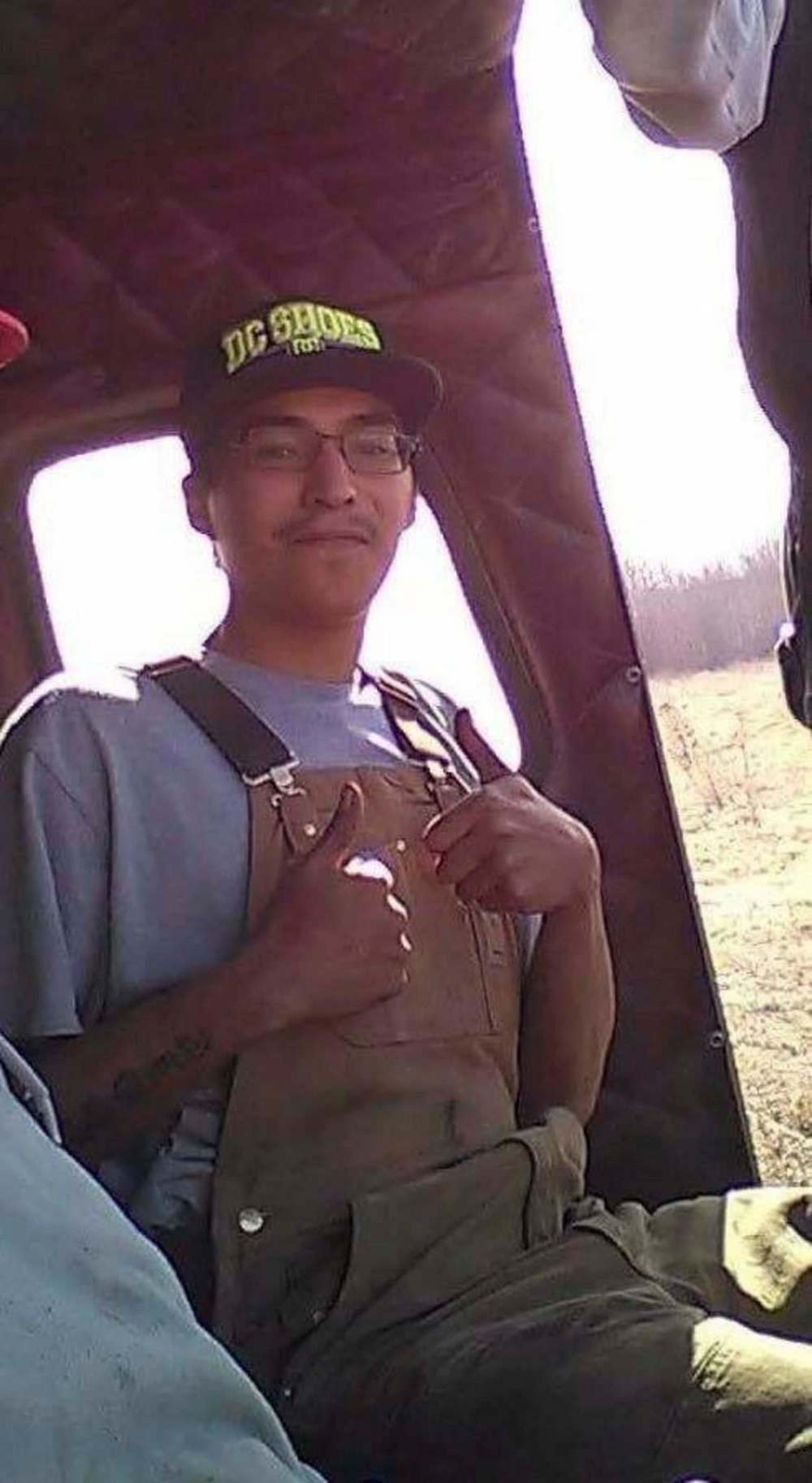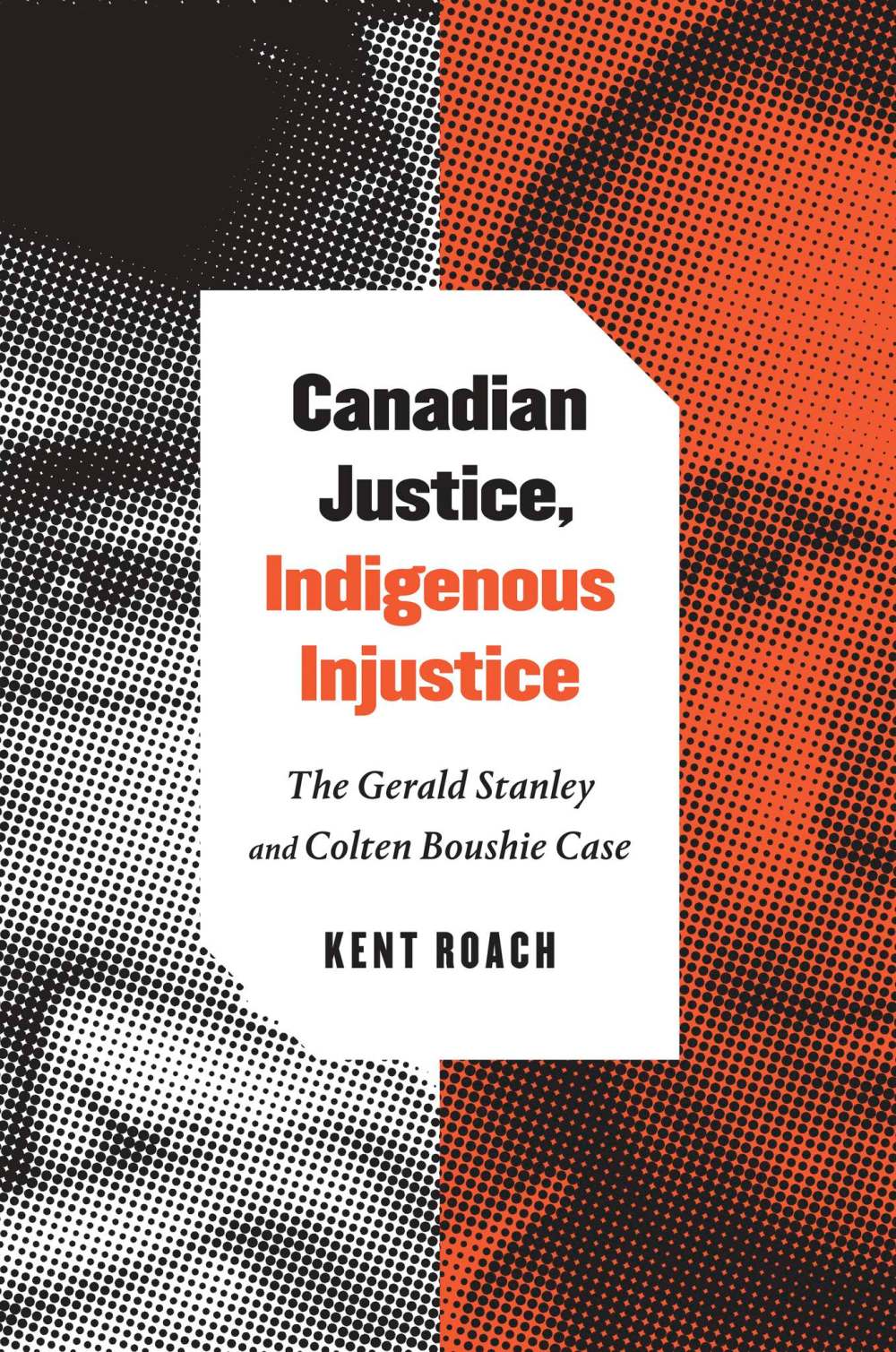Author probes context of Boushie killing
Book suggests jury selection, dearth of Indigenous judges threaten legitimacy of legal system
Advertisement
Read this article for free:
or
Already have an account? Log in here »
To continue reading, please subscribe:
Monthly Digital Subscription
$1 per week for 24 weeks*
- Enjoy unlimited reading on winnipegfreepress.com
- Read the E-Edition, our digital replica newspaper
- Access News Break, our award-winning app
- Play interactive puzzles
*Billed as $4.00 plus GST every four weeks. After 24 weeks, price increases to the regular rate of $19.00 plus GST every four weeks. Offer available to new and qualified returning subscribers only. Cancel any time.
Monthly Digital Subscription
$4.75/week*
- Enjoy unlimited reading on winnipegfreepress.com
- Read the E-Edition, our digital replica newspaper
- Access News Break, our award-winning app
- Play interactive puzzles
*Billed as $19 plus GST every four weeks. Cancel any time.
To continue reading, please subscribe:
Add Free Press access to your Brandon Sun subscription for only an additional
$1 for the first 4 weeks*
*Your next subscription payment will increase by $1.00 and you will be charged $16.99 plus GST for four weeks. After four weeks, your payment will increase to $23.99 plus GST every four weeks.
Read unlimited articles for free today:
or
Already have an account? Log in here »
Hey there, time traveller!
This article was published 21/01/2019 (2454 days ago), so information in it may no longer be current.
Nearly a year after Saskatchewan farmer Gerald Stanley was acquitted of the shooting death of a Cree man, a book that chronicles the case aims to ensure it’s not forgotten, and its author hopes it will lead to change in the justice system.
Kent Roach, a University of Toronto law professor who has spent years working on jury-selection issues in Canada, is pushing for reform with Canadian Justice, Indigenous Injustice: The Gerald Stanley and Colten Boushie Case.
“I thought it was important that people not forget the case, but also to understand it in a broader historical context and also in the broader legal context,” Roach told the Free Press.

Bushie, 22, was shot in the head by Stanley, a white farmer. An all-white jury acquitted Stanley.
In the book, which will be launched at McNally Robinson on Jan. 26, Roach traces the historical context of the Stanley trial back to the late 1870s with the negotiation of Treaty 6 in Saskatchewan, unfair trials that led to the hanging of eight Indigenous men in Battleford in 1885 and the role of all-white juries after the Louis Riel-led uprisings. He’s calling for reform to Canada’s jury-selection process and other procedures that have traditionally kept Indigenous people from serving on juries and as judges.
There’s no easy fix, Roach says, but there are solutions — some of which, he says, can be found in the treaties, as well as in recommendations from Manitoba’s 1991 Aboriginal Justice Inquiry and the 2013 independent review of Ontario’s jury system by former justice Frank Iacobucci.
“We really have to go back to basics and understand that it’s not just this case. There’s a long legacy of cases where Indigenous people, I think quite reasonably, have a distrust of the Canadian criminal justice system. And it’s not only the jury. It’s policing, the role of the RCMP.”
From February to September last year, Roach researched the Stanley case, studying court transcripts and comparing the case to research on what has led to wrongful convictions in Canada.
He found parallels between wrongful verdicts and the one that acquitted Stanley, including the reliance on expert opinion and how legal instructions were presented to the jury. Prospective jurors for Stanley’s trial were never asked about their consumption of news coverage about the case, pre-existing knowledge of the case or any racial biases they had, Roach said. He’ll be speaking about the case at the University of Manitoba’s Robson Hall on Jan. 24.
When the jury announced its verdict in Stanley’s case on Feb. 9, 2018, a jury in Winnipeg was in the midst of hearing evidence against the accused killer of 15-year-old Tina Fontaine. The body of the Indigenous teen was pulled from the Red River in August 2014. Her case had prompted calls for a national inquiry into murdered and missing Indigenous women.

On Feb. 22, 2018, 56-year-old Raymond Cormier was found not guilty of second-degree murder by the Winnipeg jury.
Both cases, which involved Indigenous victims and resulted in acquittals, fuelled a “polarization” among Canadians that “is a threat to criminal justice,” Roach says.
“The polarization that you found around the Tina Fontaine case is very similar to the polarization in the Stanley case, and Canadians are divided,” he said.
“It’s a threat that means that people are going to perceive verdicts (differently) regardless of what they are. People are not going to agree on this, but if we have truly representative juries, then this provides an opportunity for those different perspectives to come to bear in evaluating the evidence.”
Roach supports proposed federal legislation (Bill C-75) that would abolish peremptory challenges during jury selection. Both the Crown and defence have a number of challenges they can use to keep a proposed juror off the jury, without giving a reason. The practice has been criticized as discriminatory, although Roach acknowledged defence lawyers for Indigenous accused have also used challenges to try to increase Indigenous representation on juries.
“I do recognize that sometimes peremptory challenges can be used that way, but they can also be used as they were in the Stanley case, to remove all of the Indigenous people. It’s going to be easier to do that for a minority group, to systematically use peremptory challenges to keep any minority off of a jury,” Roach said.

“This is really a problem… that we have in all provinces and territories. Under-representation of Indigenous people among judges and among juries, combined with gross overrepresentation of Indigenous people among offenders and victims, there’s really a fundamental disconnect there that is slowly but surely draining away the legitimacy of the criminal justice system. I think that we just can’t allow these cases to happen year after year, decade after decade.”
katie.may@freepress.mb.ca
Twitter: @thatkatiemay

Katie May is a multimedia producer for the Free Press.
Our newsroom depends on a growing audience of readers to power our journalism. If you are not a paid reader, please consider becoming a subscriber.
Our newsroom depends on its audience of readers to power our journalism. Thank you for your support.

